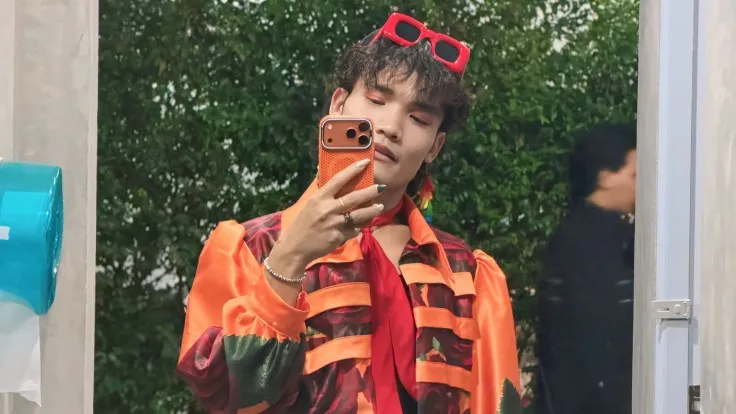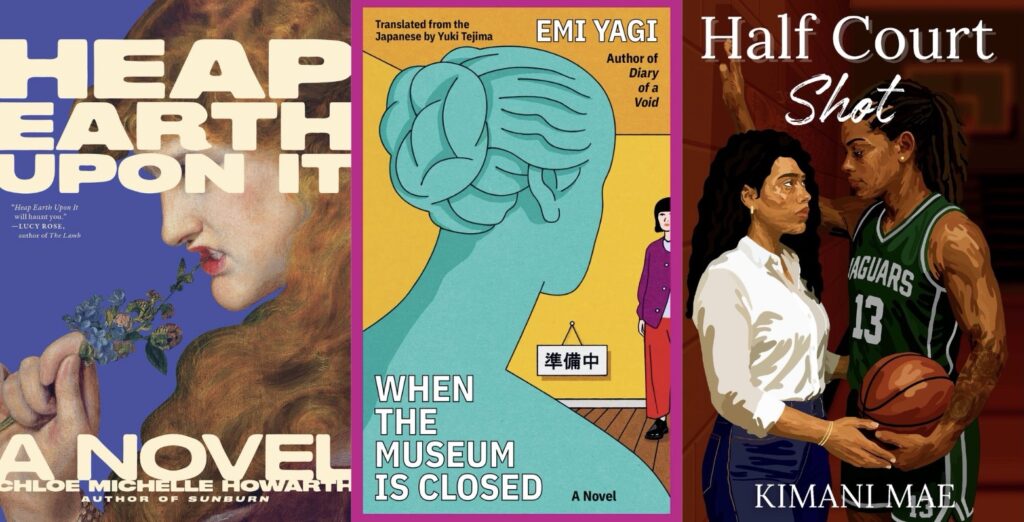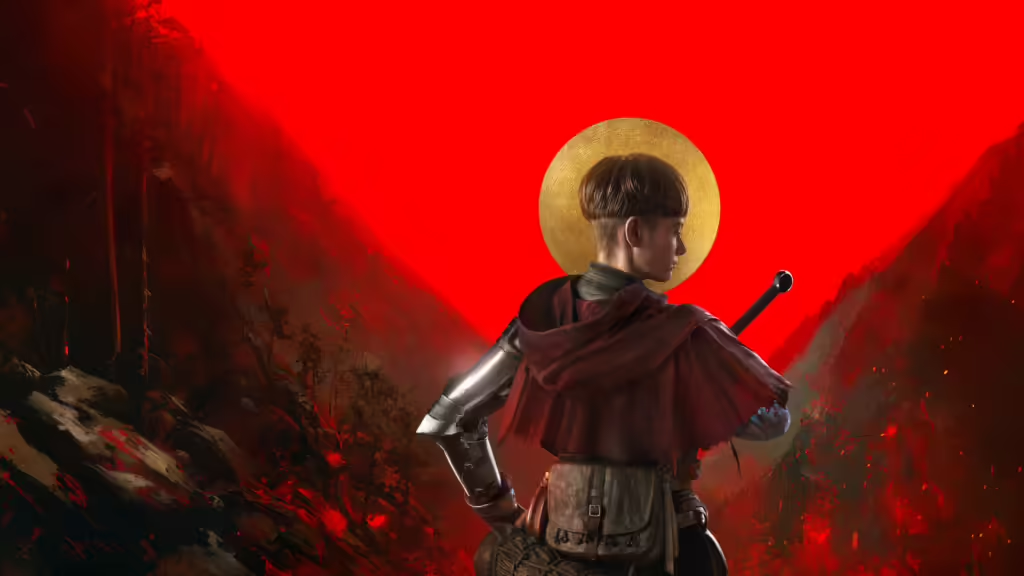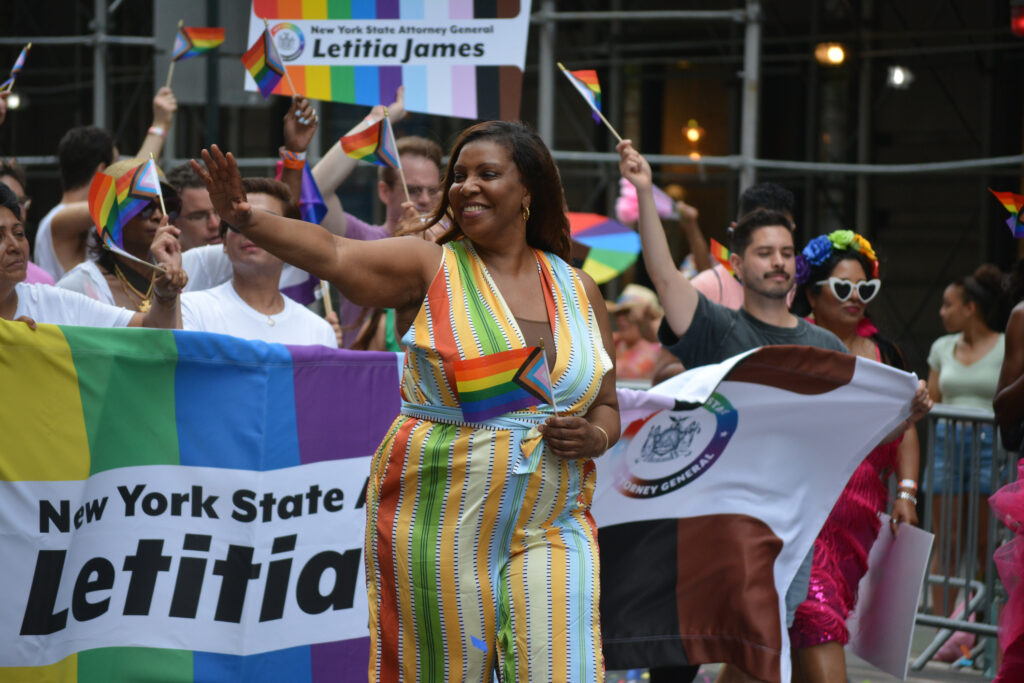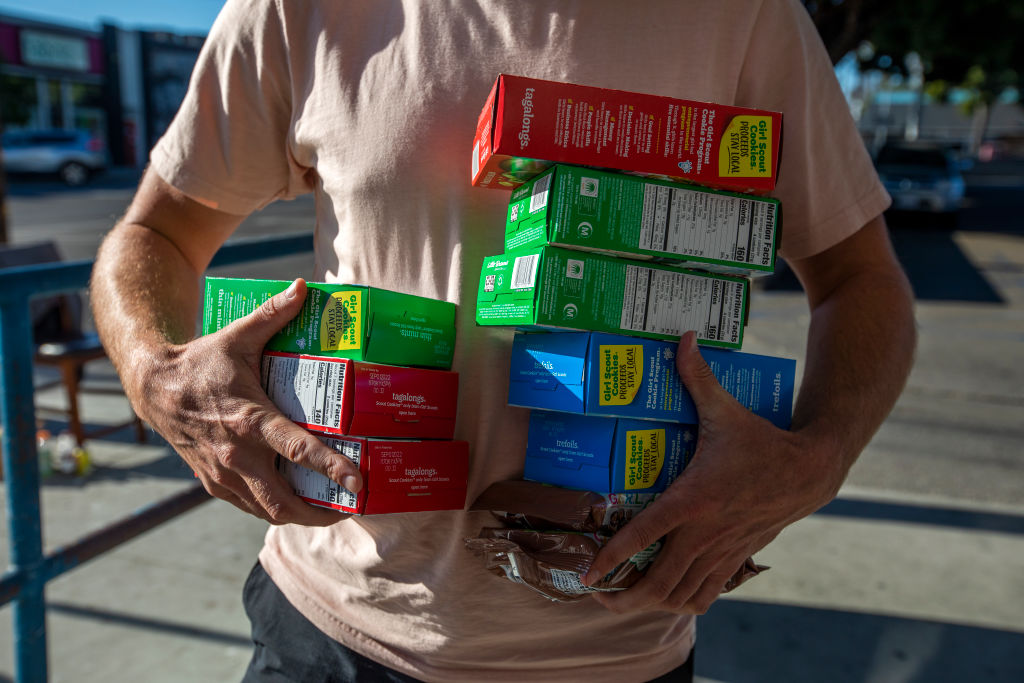Jessica Betts
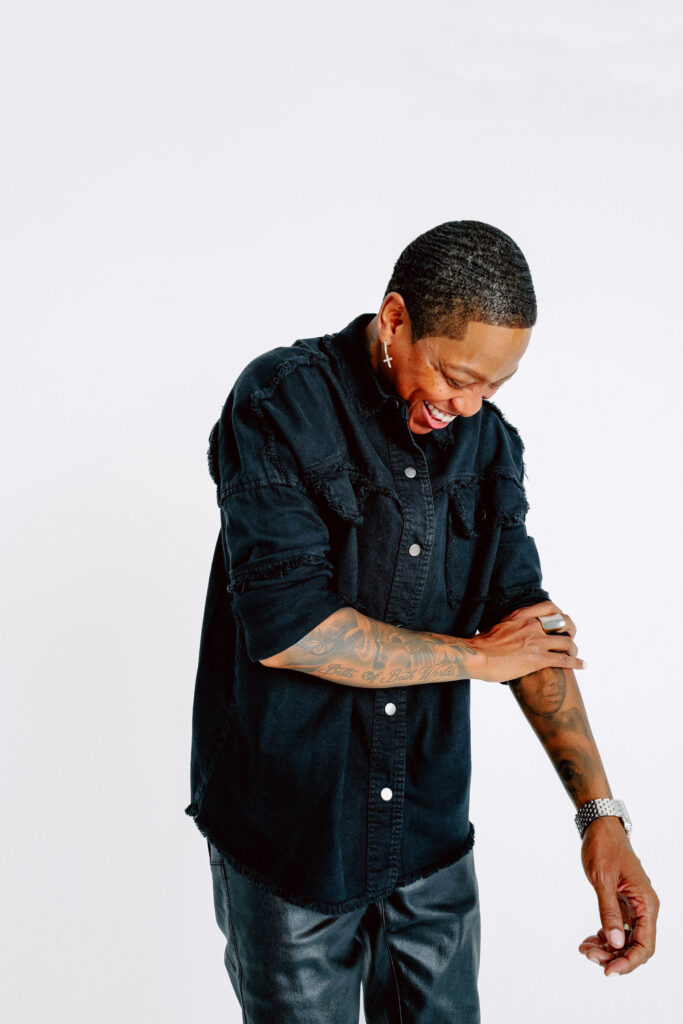
The singer and songwriter grew up hearing “you can’t” and is showing the world: hell yes, she can.
Jessica Betts heard popular music for the first time when she was almost 10 years old. For the first decade of her life, growing up in Chicago, she had only ever heard gospel music. Then came Whitney Houston. “I heard ‘I Will Always Love You’ and I just started crying immediately.” Not only was Betts’ musical world cracked open, she realized she wanted to make music herself. “I was like, ‘wow this is definitely how I want to approach music and songs.’”
Betts began singing in the church choir when she was five years old and credits her love of all music to gospel.
“I will forever have a gospel background. It’s the heart and soul of all genres,” Betts says. “As I started writing songs, I went to all genres.”
After discovering Whitney Houston, her tastes expanded from jazz to R&B, from System of A Down to Frankie Valli and the Four Seasons. “The connective tissue was great lyrics.”
Though gospel led Betts to her passion in life, The Church of God in Christ, the largest Pentecostal denomination in the United States, wasn’t the most accepting environment for a young queer musician to spend her formative years. Betts says she grew up hearing a lot of “you can’t.”
“This [The Church of God in Christ] is the most strict [denomination] in Christianity, in Black church. Women can’t wear makeup. Women can’t wear pants. Women can’t wear fingernail polish. It’s really strict,” Betts says. “Being gay was not ‘of God’ so you start to feel like: is something wrong with me?”
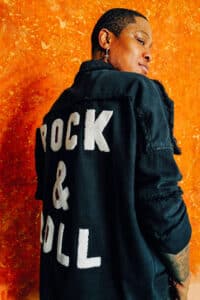
Betts, who says she became aware of her sexuality at a very young age, struggled to find her own spirituality within the church.
“I let go of all of the religious stuff,” she explained of her teenage years. “And then stepped into this more spiritual space, where I sort of built my own relationship with the Most High and understood that God is love.”
The first time Betts sang outside of church, she was 16. She picked up the mic before a high school basketball game and belted out the ‘Star-Spangled Banner.’ She says she found the confidence to take the stage all because her coach, much like the members of her church, told her, “you can’t.”
Betts says that her coach questioned her ability to take on such a renowned song and keep the attention of the crowd. “I was like, ‘yes I can. I’m going to show you. Watch me.’”
A star was born. Betts blew everyone away with her soulful vocals and transcendent stage presence. Her coach stood corrected, and the next day, proudly introduced Betts to a few friends, one of whom worked in the music industry. The friend was so impressed with Betts’ natural gift and unshakeable confidence, he became her manager. Four months later, in 1998, Betts was signed to Stone Creek Records, Boyz II Men’s label. Not only was a star born, she was on the rise.
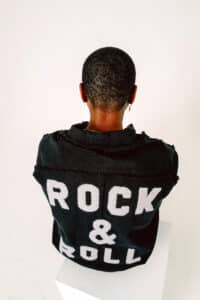
Betts attributes her courage and persistence to her very strict grandmother, who raised her, and served as a pastor at their church.
“Regardless of her not accepting my lifestyle, she still had to love and accept me. So I think that confidence kind of came in very early because I refused for her to not accept me. I refused that to be the outcome.”
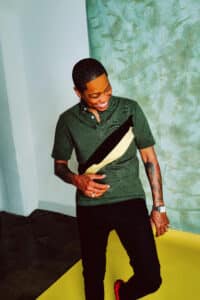
That ‘I refuse to not be accepted’ energy and conviction is what helped Betts land on two feet after Stone Creek Records went under. And when her next label attempted to rebrand her for the heteronormative masses.
At the age of 19, Betts signed to Restless Records, a sub-label of G-Funk Records in LA. She released her single “Get Up” and was featured in her first movie soundtrack. But the label pressured her to change up her look: put on makeup and a dress. Though she had relocated to LA, it seemed as if she was right back in her home city of Chicago, once again a part of the strict church she had put in the past.
“I did it for three months. I was like, ‘fuck it. Let’s do it. Let me go put on the wig and the makeup and see how it goes.’ And I was so miserable.”
Putting on a wig meant more than just covering up her hair. It meant covering up her self-expression. Now, it’s even more important to Betts to show off her natural hair: it honors the memory of her mother. “My mom was diagnosed with stage 4 colon cancer and after numerous visits to the hospital for chemotherapy, her hair started falling out until there was nothing left,” Betts shares. “She was so beautiful, even without hair, and when it started growing back, she wore this short wavy style I was obsessed with.” Unfortunately, Betts’ mother passed away in 2009, “with that beautiful short wavy hair.” A few weeks after the funeral, Betts went to a barber and asked them to cut her hair. “And I’ve been wearing my waves ever since.”
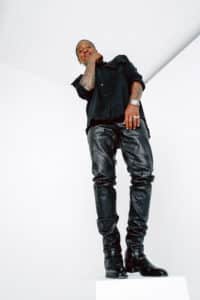
Conforming to any label’s standards was simply not going to work for a powerhouse like Betts. Three months before her album was set to launch in August of 2000, she walked away from Restless Records.
“It was tapping on my mental health. And I could not conform… I thanked the company for the opportunity to be an artist, but the opportunity has to come with me being myself.”
Betts’ commitment to authenticity, not only as an artist but as a person, has certainly come with tribulations. But Betts believes in fate, and she’s not one to throw in the towel.
“I’d rather my life be real… than to have this fake life and gain all of these possessions and all this notoriety and fame. But then, when the lights and cameras are on, having to take off who I am. This way, I get to keep all of who I am on.”
With nothing holding her down in LA, she moved across the country to New York City. She had the itch to break-away from her mentors and work on her music alone, removed from the producers and labels that she had been under for so long. What else do you do in the greatest city in the world? You break out your guitar and busk.
“My musical education is a little unconventional. My roommates were students at Berkeley, students at Julliard.” Betts learned the technical side of music this way. “I was a sponge and I was just gathering all of this information. I became self-taught.”
After teaching herself how to play guitar, Betts took her skills to the streets and subways of New York. Busking gave her a new sense of independence. She no longer needed to put on a dress or record any demos. All she needed was her spellbinding voice, her original lyrics, her self-taught guitar skills, and New York. Passersby couldn’t ignore the passion in her voice and lyrics. After four years of playing for commuters, tourists, and everyone that crossed her musical path, she was able to afford her own apartment in Jersey City.
“The lifestyle of busking became so pivotal in my life because I got so good at it…I didn’t need any roommates. A lot of people don’t realize that because they look down on it.”
Betts built a network with both other performers and fans, drawing community in with her personality and talent. Betts’ hypnotic technique and open-hearted disposition also drew in her wife, Niecy
Nash. Betts and Nash first chatted over social media, when Betts reached out and asked for Nash’s opinion on her music. The two quickly formed a friendship over a shared love of the art form. Months later, in 2018, Nash invited her to audition for a role in the hit TNT series, Claws. Nash already had a lead role in the dramedy that followed the life of five women who work at a Florida nail salon.
“I’d never acted before. I don’t act. And [Niecy] was like, ‘well just try it’. So I did.”
Betts ended up being a natural on screen. She was hired to play Nadege in Claws, and finally met Nash in person. Their bond over music deepened.
“I sent her one of the songs I had written at the time, called ‘Catch Me,’ and she called me crying, bawling her eyes out.” Nash said on the Tamron Hall show that, when she heard the song, she knew that she wanted to be loved the way the lyrics described, and the way the music felt. Little did she know, eventually, she would be loved exactly like that by the songwriter herself.
On set of Claws, their relationship was strictly platonic. They were both in romantic relationships and kept it professional, and continued their working relationship to multiple other TV shows. Their story could be the answer to the age-old lesbian question: how do you turn a friendship romantic?
“Trust is the most important part. I wouldn’t have married Niecy if we were cheating on our partners…So, if you’re going to be in a friend space, be in a friend space.”
AKA, keep it classy. When the time is right, it’s right. Years later, when they were both single, Nash made the first move.
“She kissed me on the cheek, but it wasn’t a goodbye kiss. Her lips stayed on my cheek. I felt the vibes, I felt the electricity, I felt the energy. I was just like, ‘hey, you wanna go lay down?’ And we’ve been laying down ever since.”
When the couple decided to go public with their relationship in 2020, they shared a photo of their wedding to Instagram, subsequently breaking the gay internet. They were both unprepared for the flood of support that would come in the following days.
“There’s an enormous amount of people who are just like, ‘you really helped me come into myself and now I’m out,’” Betts says. People she knew for years were unexpectedly reaching out. “They’re like, ‘yeah I’m queer and thanks to you I have the courage to say it.’”
Betts and Nash were on their honeymoon when they pushed ‘post’ on the iconic picture, which has garnered nearly half a million likes.
“We didn’t want anyone to get in front of the story. Because at this point, we’re married and we’re not going to hide anymore. We just held each other’s hands and said, ‘okay,’” Betts says.
She makes a point to clarify: the relationship was never kept a secret, just private. But, when you’re in the spotlight, coming out can be hard to navigate. Especially because Nash had never been with a woman before.
“There’s this stigma that when you come out, things don’t necessarily pan out well for you,” Betts says. “The negativity is real. You have to have thick skin for that kind of energy.”
Luckily, the happy couple is too in love to give the negativity any attention. Betts swoons when speaking about her and Nash’s relationship. “I still can’t believe we’ve been married four years…and counting,” she laughs and shows the chills blanketing her arms. Fans are getting a closer look into the love birds’ life together. They just released a single together called “Pride,” which they performed on May 31 at WeHo Pride. Betts promises her own album is soon to follow. The couple is also working on multiple TV shows, both scripted and unscripted.

The self-confidence it takes to put your relationship out there for millions of people to judge is something Betts has seemingly possessed her entire life. Taking shape during her childhood in Chicago, it followed her through her career and became the catalyst for her success – in music, in love, in life itself.
“If you’re queer, be queer. It’s okay. The water’s fine over here. A lot of people aren’t going to like you, but that’s in anything that you do. And that’s in whoever you are.”
For readers searching for a fraction of Betts’ confidence, she leaves you with a bit of advice: don’t take rejection for an answer.
“I always had a level of confidence that even scared me growing up,” Betts smirks. “That courage came in very early because I refused to not be accepted.”
BECCA WILLIAMS is a queer writer and editor from Tennessee, who recently graduated from Hofstra University with a B.A. in Journalism and a minor in Political Science. She’s worked as a writer and editor for 1010 WINS Radio and as a show director for 88.7 FM.
EVA WOOLRIDGE is a Leica Award Winning photographer, director, and activist, residing in Brooklyn, NY.







